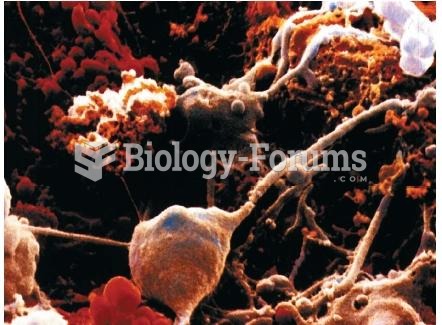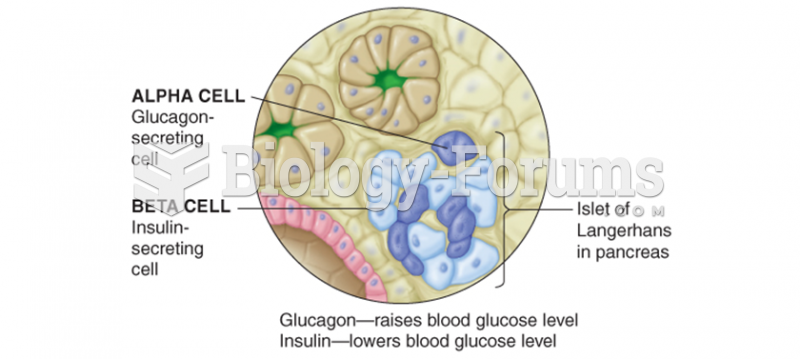|
|
|
Approximately 25% of all reported medication errors result from some kind of name confusion.
Bacteria have been found alive in a lake buried one half mile under ice in Antarctica.
Many medications that are used to treat infertility are injected subcutaneously. This is easy to do using the anterior abdomen as the site of injection but avoiding the area directly around the belly button.
Cyanide works by making the human body unable to use oxygen.
Signs of depression include feeling sad most of the time for 2 weeks or longer; loss of interest in things normally enjoyed; lack of energy; sleep and appetite disturbances; weight changes; feelings of hopelessness, helplessness, or worthlessness; an inability to make decisions; and thoughts of death and suicide.







